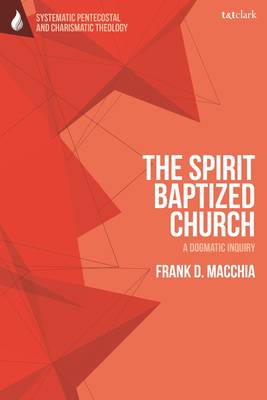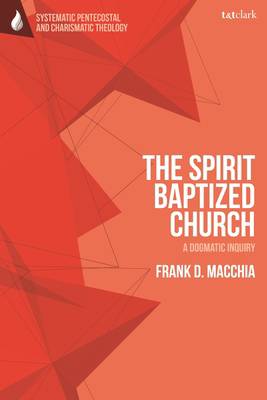
- Afhalen na 1 uur in een winkel met voorraad
- Gratis thuislevering in België vanaf € 30
- Ruim aanbod met 7 miljoen producten
- Afhalen na 1 uur in een winkel met voorraad
- Gratis thuislevering in België vanaf € 30
- Ruim aanbod met 7 miljoen producten
Zoeken
Omschrijving
Frank D. Macchia argues that the Son of God baptized (and continues to baptize) humanity in the Spirit by pouring forth the Spirit on the Day of Pentecost. All four Gospels and the book of Acts describe how the Son is sent of the Father and empowered by the Spirit to fulfil this mission; Macchia in turn claims that Christ succeeds by incorporating others into himself and into the love of the Father.
The Spirit-Baptized Church proposes a richly pneumatological ecclesiology that is dominated by a Pentecostal confessional concern, while also open to a larger ecumenical conversation. The volume focuses not only on the dogmatic (Trinitarian) foundations and election processes of the Spirit-baptized church, but also on its marks and witnessing practices. As an exceptionally detailed study of the Spirit-baptismal metaphor, this volume is a valuable resource for scholars of ecclesiology, Pentecostalism, and systematic theology.Specificaties
Betrokkenen
- Auteur(s):
- Uitgeverij:
Inhoud
- Aantal bladzijden:
- 240
- Taal:
- Engels
- Reeks:
Eigenschappen
- Productcode (EAN):
- 9780567680662
- Verschijningsdatum:
- 16/04/2020
- Uitvoering:
- Hardcover
- Formaat:
- Genaaid
- Afmetingen:
- 155 mm x 236 mm
- Gewicht:
- 521 g

Alleen bij Standaard Boekhandel
+ 508 punten op je klantenkaart van Standaard Boekhandel
Beoordelingen
We publiceren alleen reviews die voldoen aan de voorwaarden voor reviews. Bekijk onze voorwaarden voor reviews.








